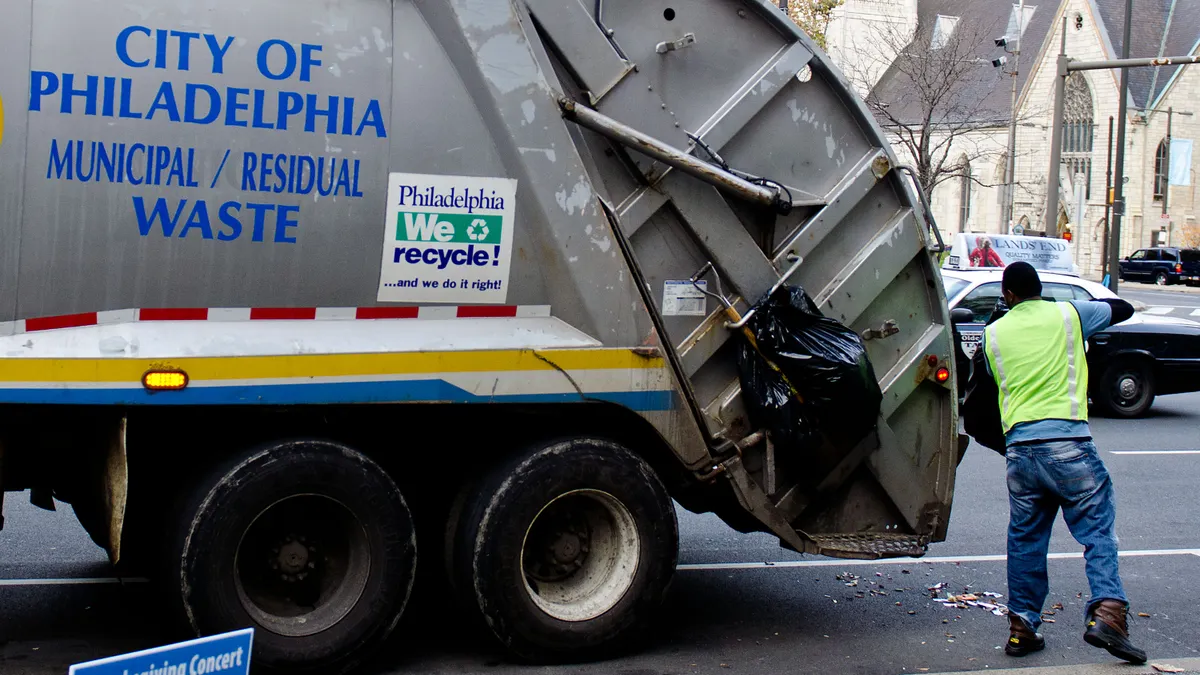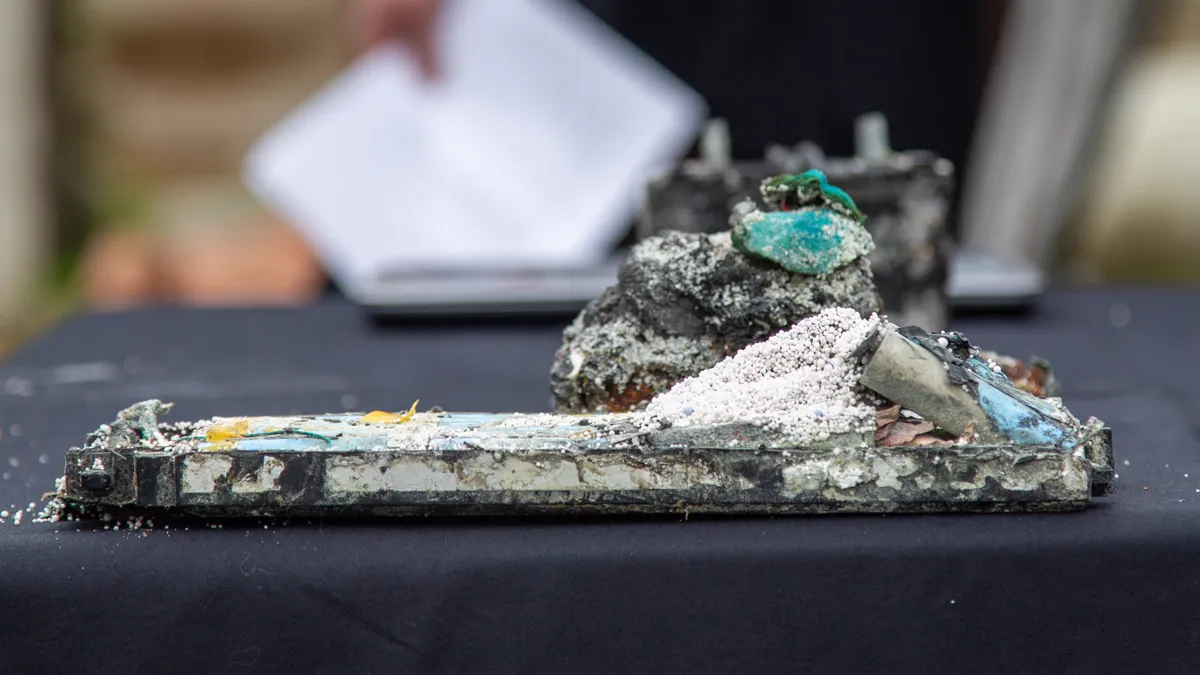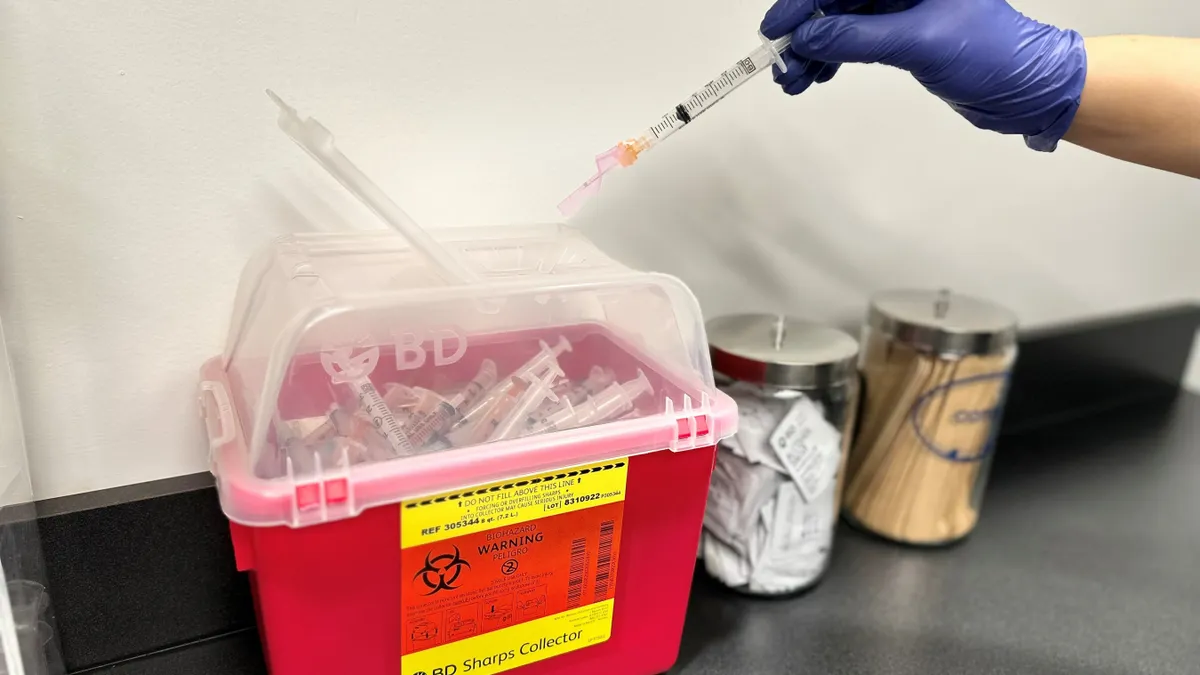Most workers in the solid waste and recycling industry remain on the sidelines when it comes to access to the COVID-19 vaccine thus far.
Around 53 million vaccine doses have been administered in the U.S., according to the most recent data from the Centers for Disease Control and Prevention (CDC). This month brought news that Johnson & Johnson submitted its vaccine candidate to the U.S. Food and Drug Administration, which if authorized soon could be the third vaccine available and the first for which a single shot is sufficient. Separately, the Biden administration announced last week it secured 200 million additional vaccine doses, bringing the national total to 600 million. But for now, states' individual rollouts remain in their early phases.
Despite advocacy efforts by groups like the Solid Waste Association of North America (SWANA) and the National Waste & Recycling Association (NWRA) to prioritize industry workers in line for the vaccine, preferably in Phase 1b behind healthcare personnel and residents of long-term care facilities, many states had frontline waste and recycling employees like collection workers fall into Phase 1c of their rollouts. Waste and recycling workers are considered essential at the federal designation level and on a state by state basis, but other categories of essential workers, such as public transit staff or grocery store employees, in many cases come first.
NWRA Vice President of Communications Brandon Wright described COVID-19 response efforts as “in a different phase now.” The association is largely past the point of attempting to influence CDC or state-level guidelines on order of vaccination, and is more so ensuring member companies and employees are in the know on their respective states' vaccination protocols. It's also sharing information from agencies such as the CDC and the Occupational Safety and Health Administration (OSHA).
SWANA is also pointing members to CDC resources and the like. "We would certainly be open to creating solid waste and recycling-specific messaging. But at the moment we're using a lot of the great resources that are already being developed," said Jesse Maxwell, advocacy and safety senior manager.
In SWANA's case, Maxwell said there is still some local advocacy happening regarding where waste workers fall in line, where movement is still possible.
"We've learned that these priority plans are not set in stone, and so chapters continue to engage on the issue," Maxwell said, noting a recent push by SWANA's South Carolina chapter to move industry workers up the list. "We continue to push for the industry to be put in a higher-priority level where we believe they deserve to be, but understand that some states are moving forward with them in a lower-priority category."
Maxwell said SWANA is also working on a template letter that private or public sector organizations could use to help workers validate that they work in the waste and recycling industry, to meet proof requirements that vary state by state.
SWANA and NWRA did not estimate when the average industry worker will have access to the vaccine, and neither Maxwell nor Wright expect a big difference in when or how the vaccine would be made available to public versus private industry workers. In New York City's Department of Sanitation, for example, sanitation police officers are among the only staff members eligible to receive the vaccine so far, DSNY spokesperson Belinda Mager said in an email.
Mager also noted some employees may be eligible sooner due to age or preexisting conditions. According to the U.S. Bureau of Labor Statistics, in 2020 the median age of someone considered a waste management and remediation services worker (which include some occupations outside of the solid waste industry) was approximately 47 years. Of the 457,000 workers listed in that category, some 29,000, or roughly 6%, are listed as being 65 years old or older, an age threshold used by many states toward the beginning of rollout.
"We continue to advocate for eligibility to expand to all of our essential employees, including Sanitation Workers who have provided critical services for all New Yorkers throughout this pandemic," Mager wrote. "We will encourage all staff who are eligible to get the vaccine." Mager said the city is offering two hours of excused time for vaccine appointments and three hours of compensatory time upon a completed vaccination. At least 1,400 DSNY employees are known to have tested positive for the novel coronavirus.
At Waste Management, the industry's largest private employer, workers will not be required to get vaccinated, but are encouraged to do so once possible, spokesperson Janette Micelli said in an email.
"WM has advised that the COVID-19 vaccine provides an added layer of protection against the virus and could help them, their fellow teammates and their families," Micelli wrote. "Given that WM does not control access to, or distribution of, the vaccine we’ve encouraged team members to monitor their state and county public health departments to understand when and how they can get the vaccine." Micelli added that "WM offers its team members generous, flexible paid time off benefits that can be used for vaccine related appointments."
Casella Waste Systems will offer paid time off for people to get vaccinated, Vice President of Communications Joseph Fusco said in an email, adding that while the company is "strongly encouraging" employees to do so, the company understands that medical history or religious beliefs could preclude someone from doing so.
"Casella is excited about the vaccine and we are speaking positively about it whenever we can — during safety meetings, for example. As we get closer to the point where the majority of our people are eligible, we will increase our educational efforts, and coordinate with state and local departments of health."
A Republic Services spokesperson shared in a statement: "While not requiring employees to get vaccinated, Republic is committed to ensuring all team members have the information and resources they need." Republic did not specify which incentives it may offer.
Although not a legal issue specific to the waste and recycling industry, "there still remain a lot of questions about what sort of incentives can or cannot be used to encourage employees to get vaccinated," Maxwell noted. Dozens of other business groups outside the industry, including the U.S. Chamber of Commerce, have called for better clarity on the matter from the U.S. Equal Employment Opportunity Commission.
Chuck Stiles, director of the Teamsters Solid Waste and Recycling Division, believes "the vast majority" of industry workers will take the opportunity to get vaccinated once possible. Stiles hopes employers will be able to offer on-site vaccine clinics once possible.
"It will encourage the guys who may be a little leery if they see their co-workers get them," Stiles said.
Mistrust in the vaccine has been of particular concern for groups historically subjected to racism in the medical field.
Early data from vaccine rollouts analyzed by the Kaiser Family Foundation (KFF) suggests Black and Hispanic people lag in the overall share of individuals who have received the vaccine thus far, compared to their population size and death rate from COVID-19. KFF has also found that Hispanic adults are among the groups most impacted by the pandemic, both healthwise and economically, but that a sizeable amount of younger Hispanics express some vaccine hesitancy.
Close to 25% of workers in the waste management and remediation services category are Hispanic or Latino, and 14.5% are Black or African American, per BLS data.
"We all know there's a little bit of fear factor out there around this, a lot of misinformation spread on this vaccine," Stiles said. "But, I think that at the end, yes, that most of our workers will adhere to it and welcome it actually."
Waste Dive welcomes information on how your organization is approaching the COVID-19 vaccination process. Please reach out: waste.dive.editors@industrydive.com



















